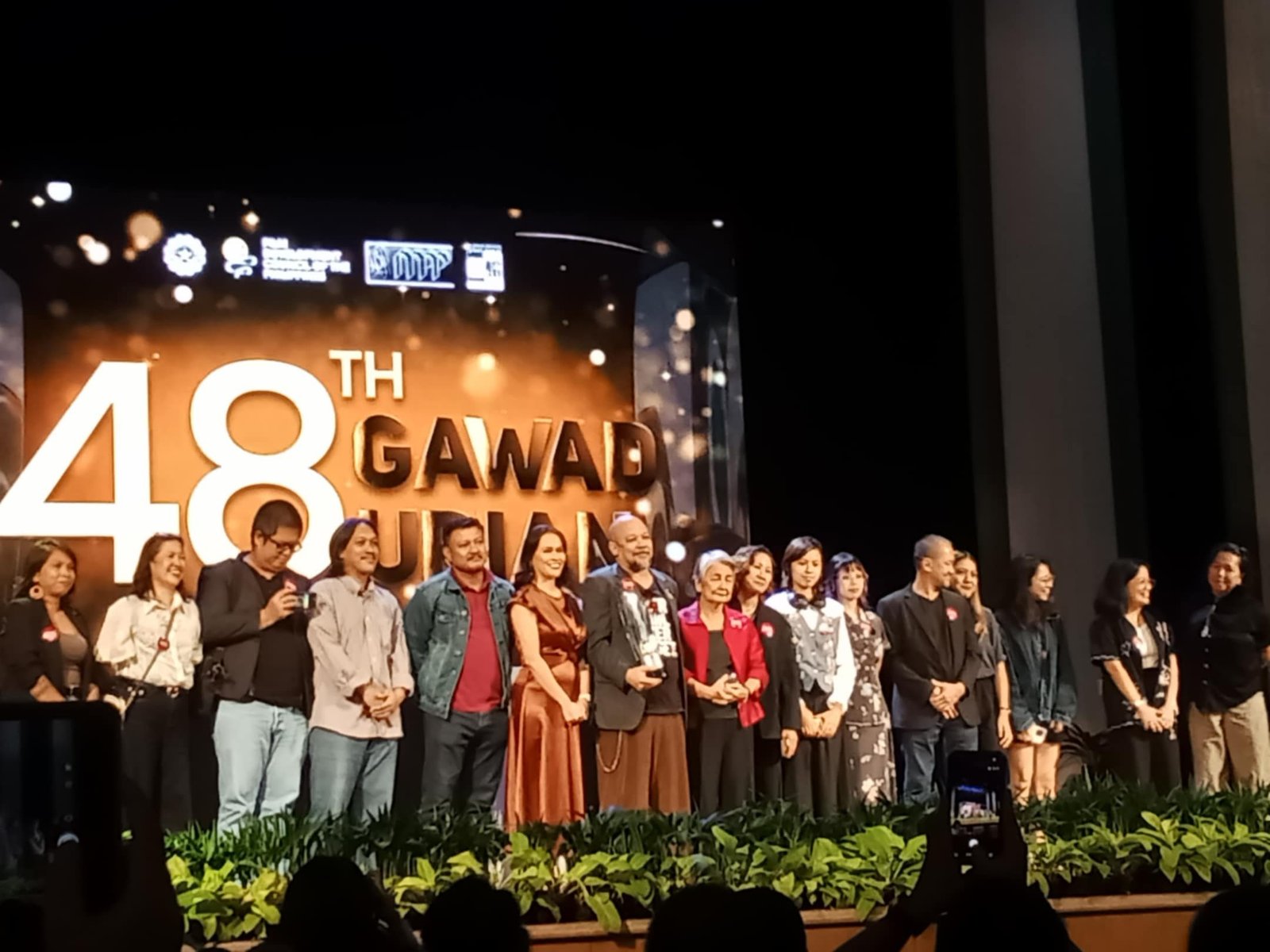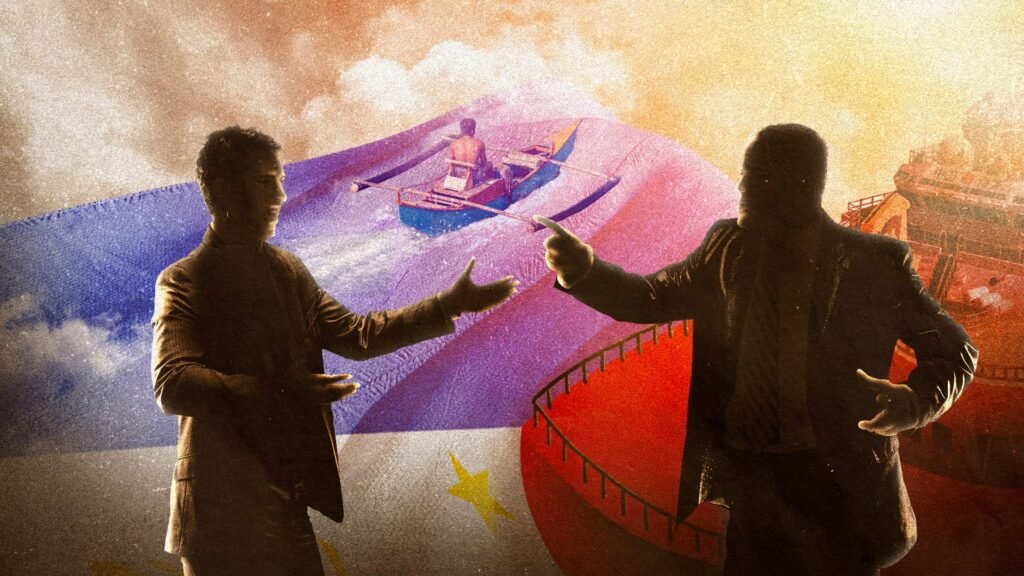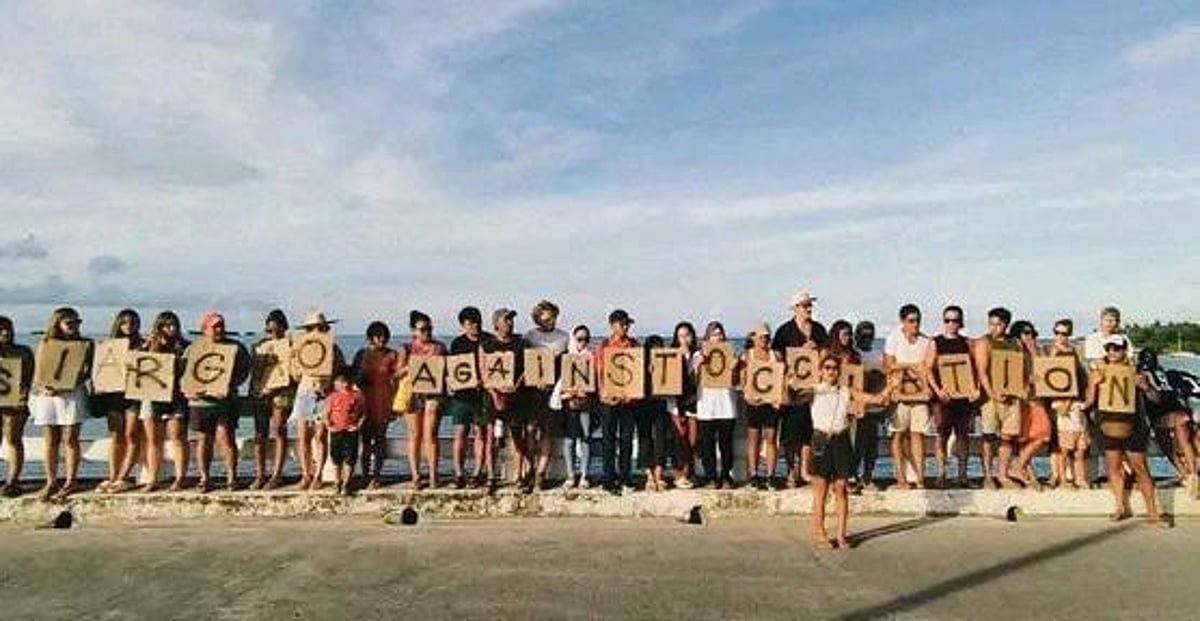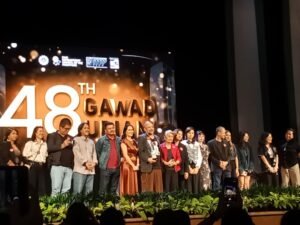I relished working for a foreign news outlet after the 2022 elections, because it meant I didn’t need to keep sticking my nose into the affairs of my country, the Philippines.
Although I was based in Manila, the bulk of my work then involved producing videos of news from the Asia Pacific region — everywhere in and between Afghanistan and Fiji. The Philippines was just one of dozens of countries under my watch; I didn’t have to report on the minutiae of its daily tragedies.
Which was great, because I felt that any effort to inform or educate the Philippines was futile. By voting the Marcoses and Dutertes back into power, the country became the dog that swallowed its own vomit. I was about ready to watch it choke.
But all that changed at the end of January 2023, when I got into an argument with my boss at the time, who was a white man based in London.
The Philippine Coast Guard had just released a video taken by a group of Filipino fishermen, as they were being chased away from Ayungin Shoal by the China Coast Guard.
“Sorry, but I don’t think there’s an international angle,” my British boss told me after I pitched the story.
“Besides, the video is too grainy.”
Something in me snapped. I resented him at that moment. I imagined the cushy little corner in London from which he was dispensing First-World editorial decisions on Third-World goings-on, and I resented him even more. I resented the outlet I was working for. I resented London, the UK, Europe, the West, the entire system that had aliens making judgment calls on things they knew next to nothing about, and who yet styled themselves editors of what they call “world news.”
No international angle? It’s China carrying out a creeping invasion of the Philippines. Video too grainy? Well then let’s tell those destitute fishermen to buy iPhones so they could film the next Chinese harassment in 4K. I screamed these thoughts in my head, and then managed to tell them to the boss in diplomatic terms.
To no avail. We never ran the video story I proposed. I seethed all through the rest of that day and for many days after. I seethed even more when I considered that, around the same time, the London team published a video about how there was an increasing number of American candy stores in London, and another one about what they found to be a ridiculous message blast from London’s local government.
International angle, my arse.
I lost a measure of respect for that editorial board in London. It suddenly felt wrong to be in that job. So when the outlet declared bankruptcy and laid off its entire Asia Pacific news team later that year, including myself, I wasn’t totally devastated. A part of me even gloated.
‘Leave this area immediately’
On July 14, 2016, two days after the Philippines won its West Philippine Sea arbitration case against China, I joined a fishing crew from Masinloc, Zambales in a voyage to Scarborough Shoal to report on whether the ruling would change anything out on the water.
The crew was as excited as I was, because they hadn’t been able to fish in the shoal’s vast, tranquil, and teeming lagoon since the Chinese moved in, in 2012. It was an 18-hour sail from the Masinloc coast to the shoal’s edge.
But just minutes after we dropped anchor on the shoal’s periphery, our skipper saw the large China Coast Guard ship on the horizon dispatch a speedboat in our direction. Soon, it was circling our outrigger boat, with one of the Chinese coast guards blaring in broken English on a bullhorn: “This is China Coast Guard, performing law enforcement duty. Leave this area immediately.”
Our skipper clenched his jaw as we weighed anchor. We better go, or they’ll start the water cannon, he said. We had planned on spending at least a night fishing; the sun hadn’t even set, and we were already being kicked out – by a bunch of intruders whose nearest shore was a four-day voyage away – from a place that had just been legally declared fair game for Filipinos.
I returned a year later with another fishing crew, for a follow-up report. By late 2017, Filipino fishers could moor on the periphery and do their business with relatively less trouble from the China Coast Guard. Except that they still couldn’t go into the lagoon, and, every now and then, Chinese coast guards would board the Filipinos’ boats and ransack their stores for their prized catch. Rodrigo Duterte’s Malacañang called it “barter.”
As a diplomatic and security reporter then for the now-defunct CNN Philippines, I had in my head pages and pages of diplomatese and geopolitics to verbalize what was happening. But for the fishermen I came with — fathers, husbands, sons with loved ones depending on them — it was plain robbery.
The situation has forced many of these seasoned, highly-skilled mariners to abandon their nets. Some took to driving tricycles, their strength and spirit atrophying while waiting hours for passengers in Masinloc, which had gone lethargic as its fishing industry declined.
But the likes of Duterte and his foreign secretary Alan Peter Cayetano were telling everyone then that everything in the West Philippine Sea was alright, as though the Chinese presence and abuse were but a small inconvenience.
Yet despite their ambiguous loyalties, Duterte, Cayetano, and their allies, including Bong Go and Bato dela Rosa, keep winning elections.
Rodante Marcoleta, who was a party-list congressman when he said that there was “nothing as the West Philippine Sea,” has been elected senator.
A page from Ukraine’s book
Such behavior is something Ukrainians don’t tolerate in their politicians, I learned. Russia’s Ukraine offensive is equal parts firepower and propaganda, but only its missiles land on Ukraine. Russian disinformation has audiences everywhere except in Ukraine.
Russia’s full-scale invasion was already two years running when I visited Ukraine in February 2024, as part of a NGO-sponsored reporting tour. By then, Ukrainians had war fatigue. They’d stopped running to bomb shelters at the sound of air raid sirens. Their skins have toughened like shells, their hearts worn out by grief and constant anxiety.
It struck me that only a few of their young men were avoiding military conscription. Many of their young women were lobbying to be included. It made me wonder: Would I go to war for my country? How come Ukrainians were so patriotic?
As relentless as Russia’s assault is its insistence that no such thing as a Ukrainian nation exists; that Ukraine is, at most, a Russian province. On top of the daily atrocity of being subjected to war, this negation of their identity adds fuel to the Ukrainians’ fire — they just couldn’t take the insult.
In the town of Borodyanka, which saw one of Russia’s most gruesome attacks, its bullet-scarred monument of Taras Shevchenko is revered as a sacred relic. Shevchenko is to Ukraine as Jose Rizal is to the Philippines — a national hero who was a poet, writer, and artist. Shevchenko and his writings are memorialized in statues, portraits, and markers all over Ukraine — he is proof of its nationhood.
Ukraine and the Philippines share in the experience of being subjugated by foreigners and inspired into nationhood by literature, said Yuliia Fediv, Ukraine’s first ambassador to the Philippines, in a Rappler interview. That’s why both our peoples are patriotic, she added.
Walking from Kyiv’s historic Maidan Square to my hotel on my final day in Ukraine, just as winter was melting into spring, I wondered whether Filipinos would ever attain the level of patriotism and self-respect I saw in Ukrainians. I inwardly wished for it but — Dear God — not through war or foreign invasion, please.
Yet even I didn’t take Rizal so seriously when he was a subject at school. I only skimmed through his books for perfunctory passing marks.
Rizal et al. were improvising
I reread Rizal’s Noli Me Tangere and El Filibusterismo some years ago, because I felt it was hypocritical that I was working as a journalist but didn’t have a good understanding of these works credited with speaking the Filipino identity into being.
Rizal certainly wasn’t the first to call anybody a “Filipino,” but his novels described and codified what it meant, at a time when claiming to be Filipino constituted a crime.
I also read Nick Joaquin’s Rizal in Saga recently, and his A Question of Heroes a while back. They’re just like those origin stories that give well-known characters a human dimension, except they’re real. You read old accounts and even rumors about Rizal, Bonifacio, Aguinaldo, the Del Pilars, the Lunas, and you realize these people were improvising even as they wrote the La Solidaridad or painted the Spoliarium or staged the Revolution.
Rizal knew his novels would rock the colonial boat, but he struggled to get them published. The people we now call “ilustrados” and “propagandists” were a bunch of conyo kids whose parents could afford them European education, and whose attempts at lobbying the Spanish Cortés for reforms failed because they couldn’t agree on what exactly to lobby for.
They often second-guessed their efforts. They quarreled over whether they should pursue integration into Spain or independence. They had petty, even murderous fights. Some were too licentious, others ran out of steam. But, in the end, we’ve come to consider them as heroes because their personal choices contributed to the establishment of the Philippines as a country.
But a country is one thing; a nation is another. Borders define a country. What defines a nation?
It’s been said many times that the reason the Philippines goes around in circles, unable to escape the cycle of poverty and corruption, is that it’s really not a nation. It can’t get its act together because its people have no natural basis for cohesion.
Think of the Marcos-Duterte fallout. Many people from Mindanao and much of the Visayas will vote for the Dutertes no matter the evidence of their wrongdoings. Just as the Solid North remained Marcos loyalists despite incontrovertible proof of the family’s atrocities.
We’ve built stone monuments to Rizal and our other heroes, but we continue to improvise with the clay of our current affairs.
As I write this, the Senate had just conjured up a newfangled means of dodging its constitutional mandate to try Vice President Sara Duterte as an impeachment court. Even the senators were confused about what needed to happen next.
They couldn’t even decide what the Constitution meant by stating the trial must “forthwith proceed.” They went through the legal motions without actually following the law.
If, all this time, we’ve only been miming being a country, then why go on? What if the Philippines was never meant to exist, being merely the byproduct of colonial experiments?
Yet the country’s dissolution is just as inconceivable, right? To regress is just as hard to imagine as to progress. We seem to be indefinitely stuck with one another — Solid North, DDS, and everyone in between.

Still a young country
Besides, not everything has gone wrong. The last election brought self-professed liberals back into the Senate. A reform-based political slate called Giting ng Pasig had their biggest win yet — a full sweep of city hall’s seats. Although some dynasties maintained or even tightened their grip on power, a number of locales rejected traditional politicians and installed fresh, credible leaders.
We only stopped being a colony on July 4, 1946 (No, I’m not about to start a debate over why today, June 12, is our Independence Day). We’ve only been a self-governing state for 79 years — a single lifetime. What I’m saying is, for a country, we are young.
The country’s state of affairs is frustrating. Infuriating. Downright maddening. But maybe this is still the awkward phase. National adolescence. If anything, our consternation is a rather robust reaction that confirms the existence within us of an instinct towards nation building.
We’re mad because we have a vision of how things ought to be.
One evening, shortly after the 2022 elections, I rode home from Parañaque to Pasig with a friend. He had campaigned actively for Leni Robredo, and her defeat devastated him.
“Sorry, but I’m stepping back from all of it,” he told me. He meant that he was disengaging from the news, from the country’s affairs, from politics, from caring about the country. It hurt too much.
I told him I would have done the same, had journalism not been my bread and butter.
But when, months later, my British boss told me that there wasn’t a worthy story in our fishermen being chased away from their heritage by marauding intruders, I couldn’t just “step back.”
The rage couldn’t be shaken off. Lost sleep couldn’t be helped. There was, under that murky water of my trauma-induced apathy, a bedrock on which my boss’ shipwreck of an editorial call ran aground.
For my compatriots to be denied and belittled in that way, their suffering dismissed as trivial and inconsequential — I just couldn’t take it. The insult. The disrespect.
We may not be as proud or well-heeled a people as the British, but we Filipinos deserve our spot on the earth (and on the water). We certainly deserve a world news headline when we’re being wronged by another country.
And so here I am, slugging it out again as a journalist covering the Philippines. Apathy yielded to rage, which yielded to — yes — love.
Sure, the country needs a lot of rectification. To become a nation is something we have to individually and collectively decide to work towards. For me, that means choosing local journalism. It’ll mean differently for different folks.
It might take generations, maybe centuries, to achieve the desired effect.
But Rizal et al. did what they did, half knowing they wouldn’t live to reap the fruit. We are the beneficiaries of that choice — we’re certainly better off than our ancestors, serfs under Spanish rule. All we can do is pay it forward, and forthwith proceed, if the result is to come sooner rather than later. – Rappler.com














